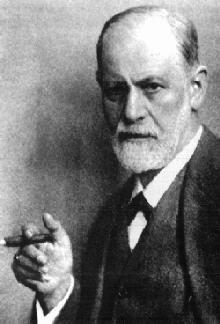 One old-timer’s name popping up in the news lately is former Maccabi Tel Aviv/Team USA great Tal Brody.
One old-timer’s name popping up in the news lately is former Maccabi Tel Aviv/Team USA great Tal Brody.
Actually, to define Brody as “great” in his years with Maccabi is overwhelming understatement, as the man’s career has weaved a thread through the club’s and, to an arguable extent (and o, it will be argued; see below) Israeli basketball history. A brief retelling of the man’s career highlights, then.
Though drafted by the Baltimore Bullets, Brody never played in the NBA and instead got with Maccabi Tel Aviv for the 1966-67 season. Maccabi immediately ascended to the European Champions Cup final four round with Brody starting in the shooting guard spot. Military commitments returned Brody to the ‘States for a couple of years and he played with on fifth-place Team USA at the 1970 FIBA World Championship.
Returning to Israel for good for the 1970-71 season, Brody was soon made immortal in Israel sports history by guiding Tel Aviv to the European Champions Cup in 1977, part of the franchise’s first triple-crown season and the country’s first major sports championship.
His post-game comments preserved a spot in history proper when he declared, in the face of certain geopolitical pressure from the Soviet Union throughout the competition with specific reference to Israel:
Which is typically translated along the lines of “We are on the map, and we are staying on the map – not only in sports but in everything.”
Brody won the Israel prize for contributions to national sport in 1979 and, since retiring from basketball in 1980, Brody has worked with various youth basketball programs; lately, he’s been linked with domestic politics among pundits and gossipmongers and last year was appointed goodwill ambassador of Israel.
Back to the present, then. The Algemeiner, described as “the fastest growing Jewish newspaper in America,” posted on Wednesday a nice interview with that “iconic figure in the world of sports” in which the former baller discusses everything from ancient (relatively) Israeli basketball history to Omri Casspi and namedrops Pat Riley, Adolph Rupp, Jerry Sloan and Moshe Dayan along the way.
Hopefully, Algemeiner won’t mind if BallinEurope throws in a hefty quote or three from the interview:
Said Brody on foregoing a possible NBA career to play in Israel: “Jerry Sloan had been drafted ahead of me and we had quite a good team in Baltimore. they were already loaded up at the guard position so I decided to take on the challenge of helping an entire country as opposed to just one team, and when I went to Israel I saw things differently then what I had imagined it would be like. I was a Jewish kid from Trenton, New Jersey and I was not expecting to see what I saw in Israel, so I told the people in Baltimore that I would take a year out of my life and go to Israel to try to take their game to another level.”

The real reason Brody fled USA?
Finally, here’s Brody, in part, on his latest gig: “[Prime Minister Benjamin] Netanyahu asked me if I wanted to join in the efforts for Israel and if I was interested in a new position which did not exist at the time; I was to be ambassador of goodwill. It took them around a year and a half before they established the position and about four months ago the ministry of foreign affairs honored me with this status. I felt very proud that they asked me as a sportsman to take on this position. I have since then been around to many college campuses in North America speaking to the ball players and the students. I have visited Jewish organizations, and have even expanded to Africa American communities.”
The entire interview may be read here.
Meanwhile, Israel-based media outlet Haaretz – itself quite an extensive coverage-provider of domestic and Euroleague basketball – today published quite a screed against the awarding of the Israel Prize to Maccabi Tel Aviv CEO Shimon Mizrahi.
In brief, the Haaretz piece entitled “The State is he” on Mizrahi and his soon-to-be new trophy contains tidbits like the following:
“The members of the Israel Prize committee write: ‘His longtime activity … has brought prestigious national and international achievements. Attorney Mizrahi’s public activity in national and international forums has raised the prestige of Israeli sports in general, and basketball in particular.’
“This is in essence the official equivalent of the classic statement that Israeli basketball is nonexistent without Maccabi Tel Aviv, meaning without Shimon Mizrahi. Underlying this statement is the proposition that Israeli basketball would not have won European Cup tournaments and would not be known abroad without Maccabi. That is probably true, but the question is whether ‘Israeli basketball’ has in fact won European Cups and whether ‘Israeli basketball’ is in fact known abroad.
“The answer is no. No one in the classic European capitals knows about the tin-can hall in Holon and it’s doubtful that they have heard about the sensational merger between Hagalil and Gilboa. What is true is that Maccabi Tel Aviv has won European Cups and that it is known around the world.”
This is, in BiE’s opinion (and admittedly knowing few of the political specifics in Israel), something of a salient point vis-à-vis this recognition of Mizrahi. Continues the piece:

Wait, how did Freud get in here?
Freudian fallacies … what? What happened there at the end of that bit? Ah, never mind…
One more point to make, i.e. that Maccabi mostly wins by exploiting its New York Yankees/Manchester United-like tendencies, i.e. spend, spend, spend and then spend some more, that are actually detrimental to Israeli sport on the whole. To wit:
“In the realm of sports, Maccabi Tel Aviv has made a habit of weakening rival teams by taking their key players and sitting them on the bench; objecting strenuously to a salary cap in the league, which would have made it more egalitarian; signing a long-term contract with Euroleague, enabling it to be Israel’s almost-exclusive representative on the Continent; sitting down with players under contract for conversations about the weather just before playing against them (see: Radisav Curcic); reinstating Pini Gershon to coach status despite his controversial remarks; and hosting the games of the league’s Final Four, as well as the State Cup championship on its home court at Nokia Stadium…”
What’s the connection to Tal Brody? Well, even beyond the club fraternity Brody shares with Mizrahi, there’s always the matter of Brody sitting on the “blue-ribbon panel of experts” which decided the prizewinners.
Wrote Haaretz some more: “Tal Brody has also been pressed into national service. Chairman of the prize committee, Brody admitted in an interview posted on the Walla! portal that he is ‘a member of the Maccabi board of directors, and in fact since my retirement from the game I have been helping Maccabi and have remained part of their system all along. I am Maccabi’s liaison with the NBA.’ In the next breath he made the usual mistake, declaring, ‘It’s true that I represent Maccabi, but in my opinion I also represent all of Israeli basketball.’
“The fact that Brody served on the committee is peculiar at best. Indeed, when it comes to the Israel Prize, one of the hard-and-fast conditions in the selection process is that the names of the committee members are confidential, to ensure that they are not subject to external pressure. Making Brody chairman is tantamount to completely ignoring that condition. And what is the point of secrecy when one of the committee members plays an active role in a body whose head he proposes as a candidate?”
(Sound of BiE’s head spinning. Enough with the political stuff, methinks.)





Leave a Reply